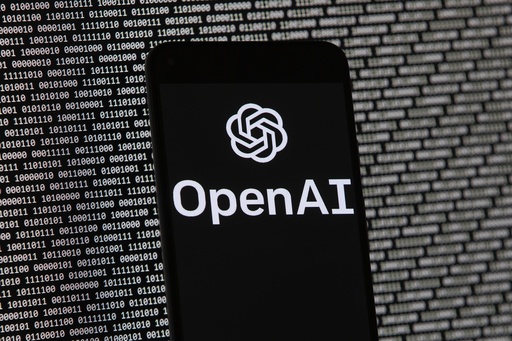In 2016, a research entity based in Mountain View, California, and incorporated in Delaware sought recognition as a tax-exempt charitable organization from the Internal Revenue Service (IRS).
This organization, known as OpenAI, expressed to the IRS its mission to “enhance digital intelligence in a manner that is most beneficial to humanity at large, unrestricted by the need to generate financial profits.”
Among its initial assets was a $10 million loan from Sam Altman, one of its founders and the current CEO.
The application, which nonprofits must disclose and was shared with the public, provides insight into the beginnings of this artificial intelligence powerhouse, which has evolved to encompass a highly valued for-profit subsidiary recently assessed at $157 billion.
It highlights the remarkable journey OpenAI and its technological innovations have taken over a short span of years.
Within its application, OpenAI stated it had no intentions to engage in partnerships with for-profit businesses, a declaration that stands in contrast to relationships formed since then.
It also indicated it would not play any role in the creation of commercial products or equipment, with a commitment to making its research freely accessible to the public.
According to Liz Bourgeois, a spokesperson for OpenAI, while the core missions and objectives of the organization remain unchanged, the approach to achieving these goals has gradually adapted to advancements in technology.
Legal experts focusing on nonprofit organizations have monitored OpenAI’s rapid growth and evolving framework with interest.
They question whether the scale and aspirations of OpenAI have surpassed the permissible limits regarding the interactions between nonprofits and for-profit entities and how closely its current activities align with its charitable mission, which is necessary for its nonprofit status.
Nonprofit specialists generally concur that OpenAI has diligently structured its corporate framework to align with the regulations governing nonprofit organizations.
Andrew Steinberg, a legal advisor at Venable LLP and an active member of the American Bar Association’s nonprofit organizations committee, remarked that OpenAI’s application to the IRS appears standard for such entities.
He mentioned that should the charity’s plans and structure shift, it is required to disclose this information in its annual tax filings, which it has done.
“When the IRS evaluated the application, the corporate framework and investment strategies that OpenAI later adopted were likely not anticipated,” he noted. “And that’s acceptable, as developments can occur over time.”
OpenAI’s research aspirations at its inception seem modest, especially in light of the current AI landscape ignited by the 2022 launch of ChatGPT.
In its communication to the IRS, OpenAI indicated plans to develop an AI system capable of mastering numerous games, creating a household robot, and developing technology that could understand complex instructions conveyed in natural language.
Presently, its offerings, which encompass text-to-image generators and emotional recognition chatbots, significantly surpass those initial objectives.
Initially, the nonprofit stated it had no ambitions to engage in commercial ventures, asserting it would not be involved with product development and would make its research publicly available without discrimination.
Bourgeois commented that the organization now believes that achieving its mission is best served through creating products that empower individuals to utilize AI in tackling various challenges, emphasizing that many of these offerings are free.
Furthermore, she noted that forming commercial partnerships has also contributed positively to pursuing their mission.
In its 2016 IRS report, OpenAI highlighted that disseminating research to the public is fundamental to its mission.
The organization expressed intentions to frequently publish its research outcomes on its website and to share developed software under open-source licenses.
Additionally, it mentioned its intention to maintain ownership of any intellectual property it creates.
The implications regarding the value of this intellectual property and its affiliation—whether with the nonprofit or the for-profit branch—could become pivotal, especially if OpenAI contemplates a shift in its corporate structure, as indicated by Altman in recent discussions.


